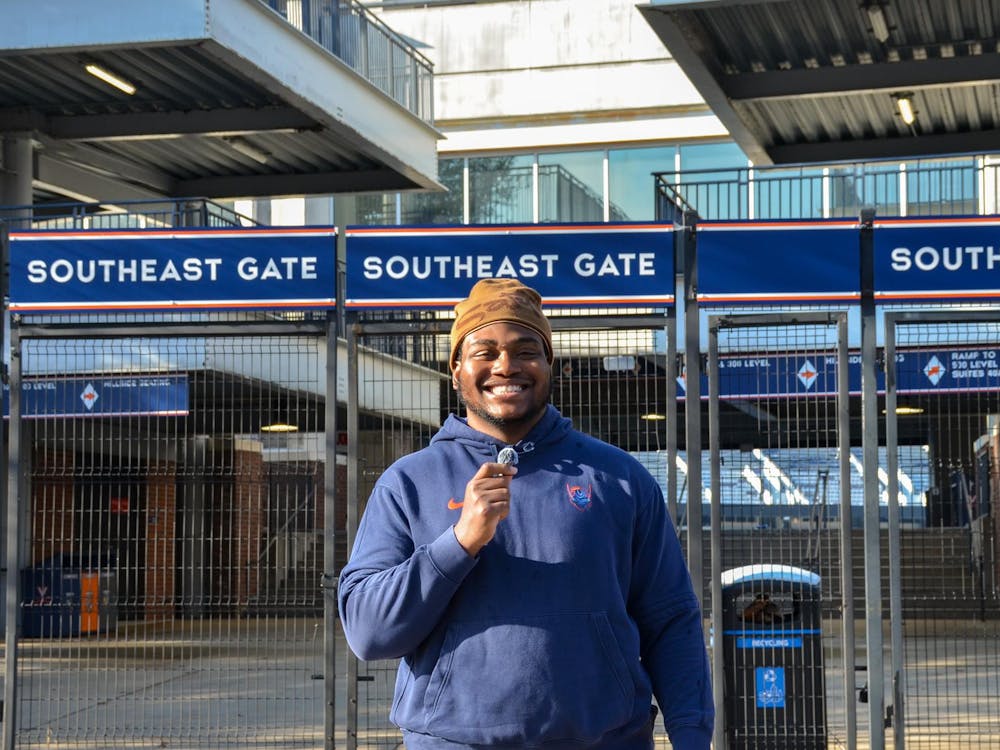Student musicians are just like every other student when it comes to balancing play and work in a way that ensures some degree of satisfaction and sanity. One main difference, however, is that student musicians use much of their play time to improve and enjoy a skill that may become a career one day, while many other students spend somewhere between five and 90 percent of their free time on Facebook. Student musicians like Helen Horal and the members of Sparky's Flaw can give other students a perspective on how they manage both work and play as students while pursuing careers in music.
The city surrounding the University is one of the resources available to aspiring musicians in the area. According to Horal, a fourth-year College student, Charlottesville has an "unbelievable music scene" that allows student artists to record and play their own work around the city. The availability of coffee shops, restaurants and bars for playing gigs offers them a chance to build a fan base for the future or just get some experience performing for a crowd. According to members of Sparky's Flaw and Horal, this helps musicians reach out-of-town listeners and broaden their audiences.
Along with the musical advantages Charlottesville offers, however, comes the tricky aspect of fitting in schoolwork around playing late night or sometimes all-night shows and finding practice time beforehand. It's not easy, said William Anderson, fourth-year College student and lead singer and songwriter of Sparky's Flaw.
The band travels most weekends and spends sometimes only Mondays and Tuesdays in Charlottesville, he said. This busy calendar makes for a lot of missed classes -- Anderson said he has been able to attend only one out of six discussions for a class so far this semester.
Usually those two nights are spent "on overload in the library to get the reading done for the rest of the week," Anderson said.
Even so, two days are usually not sufficient time to get a week's worth of work done.
Sometimes the band members, two of whom are University students, find themselves "writing papers in a random bar, bouncing ideas off each other at a table listening to another band play," Anderson said.
Traveling to shows is not the only time-consuming project that student musicians face as an obstacle to getting work done. Horal confesses to procrastinating "until the last possible minute" plenty of times due to the juggling of her schedule. Recently, studio time and recording her new CD "Words Unbroken" have monopolized much of her time. Her remaining time is divided among school work, a social life and once-a-week practices with her band, which includes musicians James McLaughlin, Sam Wilson, Brian Chenault, Wells Hanley and Darrell Muller.
Now that she has finished recording the CD, however, she is looking forward to playing live again.
"It's not so much practicing so much as using [music] as a hobby," she said. "My favorite thing is when people say they see how much fun I am having on stage, because I really am!"
Although she enjoys creating and performing her music, Horal knows as well as anybody that a music career, even part-time, requires a lot of work. When she was in high school, she said she played four to five shows a week in the evenings after a full day of classes, often in bars where she had to pretend to be 21 to book gigs with bands. During her senior year of high school, she also recorded and put out her first CD, "There's Only This Place."
Horal said self-motivation is key to a serious interest in music.
"You have to create a business around yourself," Horal said.
Her own business plan includes staying in Charlottesville for a few years after college to work on name recognition and to build a following for her band and her songs, possibly scouting a record deal afterward.
The members of Sparky's Flaw also have plenty of experience making a business out of their sound, honing their skills in countless practice sessions before and during college. Anderson said after he and some of his bandmates graduate, music will be their full-time occupation for at least the next three or four years.
"School is a high priority, but music is still the top priority," he said.
So why would the band members spend time getting college degrees instead of diving straight into the music industry when their future is in the music? Anderson said he and the other members of the band had wondered the same thing. Anderson said music talent agent L.A. Reed counseled them that a college education is an invaluable asset just as crucial as their sound, which has been described as falling somewhere between The Fray and Maroon 5.
The amount of effort and ambition that goes into thriving -- and surviving -- as a student musician requires a unique flexibility and tough work ethic. Horal and the men of Sparky's Flaw nevertheless find time -- though maybe less of it -- to indulge in the same activities as other students: they hang out with friends, go to parties and even occasionally clock in some Myspace and Facebook time.
"I go to parties, I have parties, I go to class and even the occasional football game," Horal said.
Though Anderson said the band members were not that into the "party scene," they still find plenty of time to hang out with their friends. Luckily for these guys, most of their best friends are part of the band, which makes for hours of traveling and downtime on the road to catch up and chill out.
Weekend sporting events like football games are harder to fit in, but Anderson said he has gone to quite a few basketball games in the middle of the week. Both Horal and Anderson were fairly mum on the issue of dating, which might be good practice for a future of being in the limelight and learning to keep certain things private. Judging from their successes thus far, these musicians could put their fame skills into use soon enough.
Forging a career in an industry like music -- where new talents rise and fall every day -- while undergoing the usual rigors of late-night studying and endless reading, student musicians like Horal and the band members of Sparky's Flaw face scheduling and time conflicts that give them experience in allocating their resources and talent in ways that will serve them in their careers after college -- whether in music or any other profession.






